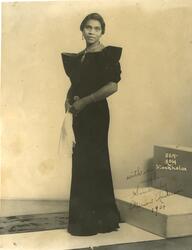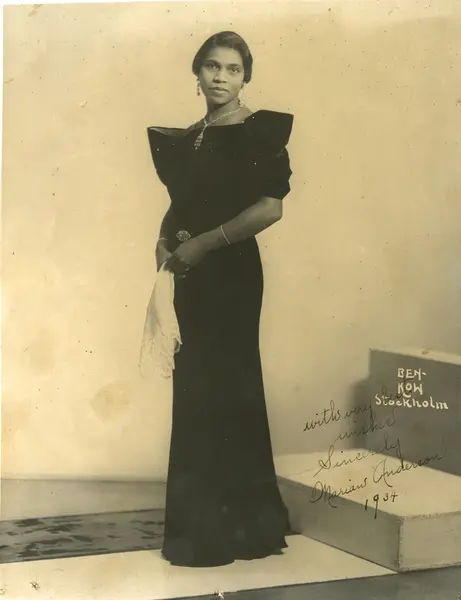Marian Anderson (February 27, 1897 – April 8, 1993) was an American contralto. She performed a wide range of music, from opera to spirituals. Anderson performed with renowned orchestras in major concert and recital venues throughout the United States and Europe between 1925 and 1965.
Anderson was an important figure in the struggle for African American artists to overcome racial prejudice in the United States during the mid-twentieth century. In 1939, during the period of racial segregation, the Daughters of the American Revolution (DAR) refused to allow Anderson to sing to an integrated audience in Constitution Hall in Washington, D.C. The incident placed Anderson in the spotlight of the international community on a level unusual for a classical musician. With the aid of First Lady Eleanor Roosevelt and her husband, President Franklin D. Roosevelt, Anderson performed a critically acclaimed open-air concert on Easter Sunday, April 9, 1939, on the Lincoln Memorial steps in the capital. The event was featured in a documentary film, Marian Anderson: The Lincoln Memorial Concert. She sang before an integrated crowd of more than 75,000 people and a radio audience in the millions.
On January 7, 1955, Anderson became the first African American singer to perform at the Metropolitan Opera. In addition, she worked as a delegate to the United Nations Human Rights Committee and as a Goodwill Ambassador for the United States Department of State, giving concerts all over the world. She participated in the civil rights movement in the 1960s, singing at the March on Washington for Jobs and Freedom in 1963. The recipient of numerous awards and honors, Anderson was awarded the first Presidential Medal of Freedom in 1963, the Congressional Gold Medal in 1977, the Kennedy Center Honors in 1978, the National Medal of Arts in 1986, and a Grammy Lifetime Achievement Award in 1991.
[en]




 I arbeid...
I arbeid...